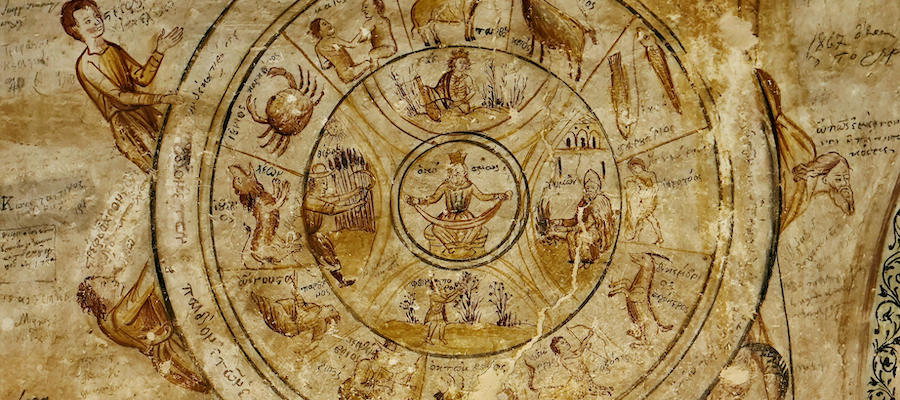Philosophical Aspects of Byzantine Music
In the Timaeus, Plato presents the Creator who “gave the world the shape ‘which was suitable and akin to its nature’, i.e. a rounded spherical shape, ‘because he believed that likeness is incalculably more excellent than unlikeness’. The Creator then assigned to the world a rotatory or circular movement, ‘which is the most appropriate to mind and intelligence’…”
In his lecture, Dr. Chaldæakes will consider the symbol of the circle, a shape that symbolizes the universe which surrounds us, a small reflection of the harmony of the world in which we live, a world that is driven by circular movements. The principle of circularity is a key element in the Pythagorean view of the world and is carried forward by Plato where it becomes a predominant pattern in platonic astronomy. The Masters of Greek Music used the so-called Wheel of the Eight Modes to teach the Theory of Greek Music, where the philosophical background and the symbolism of this circular shape reflects the inner sense of Greek Religious Music. Furthermore, this lecture situates this discourse within the context of Plato's Academy as it was transmitted through the Pythagorean Philosopher Theon of Smyrna in his well-known work Mathematics Useful for Understanding Plato.
This lecture will take place live on Zoom, followed by a question and answer period. Please register to receive the Zoom link.
Part of the Boston Byzantine Music Festival Lecture Series exploring the musical heritage of the Byzantine Empire. The Boston Byzantine Music Festival is a program of the Mary Jaharis Center for Byzantine Art and Culture.
